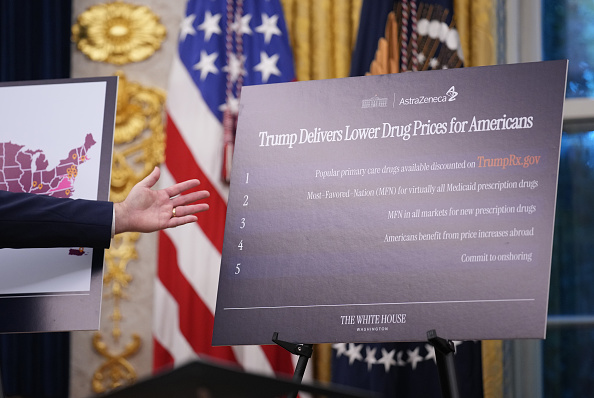Several hospital systems are considering an appeal to the U.S. Supreme Court after the New Jersey Supreme Court rejected their claim that inadequate compensation for charity care was an unconstitutional taking of private property without just compensation.
New Jersey’s charity care program prohibits hospitals from billing patients who qualify for charity care, which the state defines. The state compensates hospitals for the care with annual payments from its Health Care Subsidy Fund. The hospitals say the program fails to “cover the basic cost” of care and does not compensate them for the use of their facilities, hospital space, supplies, and services for treatment.
Regulated Care
On July 16, the New Jersey Supreme Court ruled against the health care providers.
“Under the facts as presented in this case, we hold that charity care is not an unconstitutional ‘per se’ physical taking of private property without just compensation,” the majority opinion states. “It does not grant an affirmative right of access to occupy hospitals; it does not give away or physically set aside hospital property for the government or a third party; and it does not deprive hospitals of all economically beneficial use of their property.”
“We also hold that charity care is not an unconstitutional ‘regulatory’ taking of private property without just compensation,” the court ruled. “That is due to the highly regulated nature of the hospital industry and the legislatively declared paramount public interest that the charity care program serves.”
Compensation Concern
The hospitals, eight for-profit and nonprofit general acute-care facilities operating throughout the state, argued the inadequate compensation was their main complaint, not the requirement to provide charity care. The state’s Supreme Court said the financial issue is best resolved in the state legislature.
John Zen Jackson, the attorney representing the hospitals, told NJ Advance Media the court’s analysis is “flawed” and “contrary to the trend of United States Supreme Court decisions in the last decade finding wrongful physical takings occurring in regulated industries and activities.”
Charity care subsidies are not a dollar-for-dollar reimbursement, the court’s opinion acknowledged. The state apportions reimbursements based on what the legislature funds, which cannot be less than 75 percent of what hospitals give out each year in charity care.
The state reimburses hospitals “by dividing the amount of hospital-specific gross revenue for charity care patients by the hospital’s total gross revenue for all patients,” says the opinion. The cost of care is based on Medicaid rates.
The tradition of mandated charity care goes back 178 years, codified by the state “to protect the general health and welfare of its citizens,” the court’s opinion states. New Jersey’s Certificate of Need laws also require facilities to provide charity care, as does the federal Emergency Medical Treatment Active Labor Act (EMTALA).
Long Tradition
Hospitals are “legally required to offer financial assistance—but the systems in place are broken,” states the website of “Dollar For,” an organization calling for an improved application process for charity care, better ways to identify patients who need financial assistance, and “debt collection protections to prevent aggressive billing.”
Eli Rushbanks, the organization’s general counsel, says the court decided the case correctly.
“The ‘takings clause’ was an interesting argument the hospitals put forward,” said Rushbanks. “At the federal level, nonprofit hospitals receive a tax exemption, so that is compensation to them. We see a lot of financial-assistance denials because the hospitals require people to apply for Medicaid before they can receive financial assistance, and that takes time.”
Most hospitals today are far from poor, says Rushbanks.
“We have the Ascensions, and the Mayo Clinics, and the Providences, some of the most well-off financial organizations in the country,” said Rushbanks. “They have lots of cash, massive investments, and foundation funds. Little revenue comes from actual patient services.”
Costly Mandates
State and federal laws that require hospitals to provide charity care have forced many hospitals to close departments with high charity volume, says Linda Gorman, director of health care policy at the Independence Institute.
“EMTALA has proven to be so costly that some hospitals closed their emergency departments,” said Gorman. “Others shut down their obstetrics units. Both generated substantial amounts of uncompensated care.”
States on the southern border, where the costs of treating illegals have historically been concentrated, have been hit especially hard by the federal mandate, says Gorman.
“Some hospitals have had to defer elective surgeries as the costs of treating people who do not pay have made them unable to pay for adequate staffing,” said Gorman.
“While Medicaid expansion has reduced uncompensated care, losses from Medicaid underpayment have likely exceeded the uncompensated care gains,” said Gorman.
Takings Clause Confusion
Mandatory charity care that is not fully compensated requires individuals to donate their time, services, and capital investments, says Gorman.
“By passing EMTALA, Congress required hospitals to provide free services to patients with ‘emergent’ conditions,” said Gorman. “In cases of serious illness or injury to illegal aliens or people who simply refuse to pay, this can cost hospitals millions of dollars. When hospitals are privately owned, this effectively expropriates funds from private investors.”
The New Jersey Supreme Court suggests there is a difference between appropriating real estate without payment and appropriating profits without payment, says Gorman.
“Real estate is constitutionally protected,” said Gorman. “The money people earn to purchase the real estate? Not so much. Economically, there isn’t really a difference—but with law, who knows?”
AnneMarie Schieber ([email protected]) is the managing editor of Health Care News



